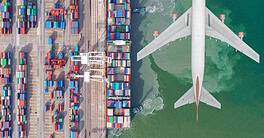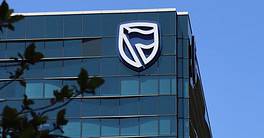The key factor shaking up the rankings this year is the tightening of regulatory oversight worldwide.

European banks continue to dominate our Safest Bank ratings, while this year Canadian banks crept higher in the ranking due to a sovereign upgrade. But the big driver of bank security in the new era has been regulation. Although banks have benefitted from sustained worldwide economic growth in recent years, the financial profile of many institutions improved as a direct result of the heightened regulatory environment post-financial crisis. Rules now require higher levels of bank liquidity and capitalization, with generally improving trends in asset quality across many developed markets.
Still, major challenges may arise from the planned shift to more restrictive monetary policy, potentially damaging trade wars, Brexit disruption and persistent geopolitical tensions. In this considerable uncertainty, the Global Finance annual rankings of the World’s Safest Banks provide an important measure of clarity.
The World’s Safest Banks 2018
- Top 50 Safest European Banks
- Top 25 Safest Chinese Banks
- Top 50 Safest Middle Eastern Banks 2018
- Top 50 Safest Emerging Market Banks 2018
- Top 50 Safest Commercial Banks 2018
- Safest Banks in the World 2018 | Country Winners
- Safest Islamic Banks in the GCC 2018
- Biggest Emerging Market Banks in the World 2018
- Biggest Banks in the World 2018
Regulatory changes have been a catalyst for bank restructuring, and since our last ranking there have been a number of significant new mandates. Notably, the finalization of Basel III (designed to strengthen capital requirements and reduce bank leverage), the adoption of IFRS 9 (to harmonize definitions and accounting principles around financial instruments) and the implementation of recovery and resolution plans are global in scope.
Banks must address additional mandates related to consumer privacy under Europe’s General Data Protection Regulation (GDPR), and securities-trading transparency and investor protection under the revised EU Markets in Financial Instruments Directive (MiFID II). In November, the European Banking Authority released the results of its latest stress test (which applies to 70% of EU banking sector assets), detailing the capital impact of a set of adverse assumptions. The Bank of England has imposed ring-fence requirements to separate retail and consumer business from wholesale and markets-related banking. UK banks must also issue additional subordinated liabilities up to a minimum buffer requirement to protect senior creditors.
Meanwhile, in the US, elements of Dodd-Frank have eased; this mainly impacts regional and community banks. Going forward, the refinement of capital and liquidity requirements, compliance with stress tests, and ensuring robust recovery and resolution plans will continue to underpin regulatory oversight. Such mandates ultimately contribute to the resilience of the sector.
After the 2008 crisis, central banks injected significant liquidity into the financial system through highly accommodative monetary policy (quantitative easing), hiking the threat of asset bubbles and inflation. This stance has shifted. The US Federal Reserve is now well into a tightening phase; its European counterpart is expected to follow, possibly in mid-2019. While rising rates in some regions could benefit banks’ net interest margins, innovation is needed to maintain profitability. Fintech has brought fresh competition in finance, and banks must develop or acquire robust online platforms to grow their consumer business.
In this era of heightened scrutiny, with the prospect of rising interest rates that may pressure economic growth, the sector faces additional challenges. Achieving earnings growth will be particularly daunting given the considerable costs related to regulatory compliance, new technology investment and maintaining legacy systems. Moreover, robust risk management is critical to manage global risks, ensure data security and prevent cyber threats. Banks must continue to identify cost efficiencies while focusing on revenue initiatives.
We apply a straightforward approach to ranking the World’s Safest Banks, using long-term foreign-currency debt ratings from the three major international rating agencies. (Details p. 19)
Overall, the Global Top 50 banks include institutions that exhibit considerable stability. As a result, scores remain in a narrow range. The score for inclusion among the Global Top 50 was relatively unchanged at 18.5 points (versus 19 in 2017) out of a top score of 30.
As in the past, sovereign-rating changes can have a large impact on movements year-over-year. For example, the Canadian banks rose in our 2018 rankings due to an upgrade by Moody’s in July 2018 following Canada’s adoption of new bank resolution regulations. The upgrades boosted the rankings for Toronto-Dominion (11th), Royal Bank of Canada (12th), The Bank of Nova Scotia (27th), Bank of Montreal (32nd) and Canadian Imperial Bank of Commerce (33rd and a new entrant).
Methodology: Behind the Rankings
Our ratings apply to the world’s largest 500 banks by asset size. We calculate the rankings based on the long-term foreign currency ratings issued by Fitch Ratings, Standard & Poor’s and Moody’s Investors Service. Where possible, ratings on holding companies rather than operating companies were used, and banks that are wholly owned by other banks were omitted. Within each rank set, banks are organized according to asset size based on data for the most recent annual reporting period provided by Fitch Solutions and Moody’s. Ratings are reproduced with permission from the three rating agencies, with all rights reserved. A rating is not a recommendation to purchase, sell or hold a security, and it does not comment on market price or suitability for a particular investor. All ratings in the tables were valid as of August 17, 2018.
| WORLD’S SAFEST BANKS 2018 — The Global Top 50 |
|---|
| Rank | Company Name | Country | Fitch | Moody’s | S&P | Total Score | Assets ($ Mil.) | Statement Date |
| 1 | KfW | Germany | AAA | Aaa | AAA | 30 | 566,486 | 31-Dec-2017 |
| 2 | Zuercher Kantonalbank | Switzerland | AAA | Aaa | AAA | 30 | 167,945 | 31-Dec-2017 |
| 3 | Landwirtschaftliche Retenbank | Germany | AAA | Aaa | AAA | 30 | 108,711 | 31-Dec-2017 |
| 4 | L-Bank | Germany | AAA | Aaa | AAA | 30 | 84,640 | 31-Dec-2017 |
| 5 | BNG Bank N.V. | Netherlands | AA+ | Aaa | AAA | 29 | 167,932 | 31-Dec-2017 |
| 6 | Nederlandse Waterschapsbank | Netherlands | NR | Aaa | AAA | 29 | 101,924 | 30-Jun-2017 |
| 7 | Kommunalbanken | Norway | NR | Aaa | AAA | 29 | 47,738 | 31-Dec-2017 |
| 8 | NRW.BANK | Germany | AAA | Aa1 | AA— | 26 | 175,242 | 31-Dec-2017 |
| 9 | Banque et Caisse d’Epargne de L’Etat | Luxembourg | NR | Aa2 | AA+ | 24.5 | 54,305 | 31-Dec-2017 |
| 10 | Caisse des Depots et Consignations | France | AA | Aa2 | AA | 24 | 207,623 | 31-Dec-2017 |
| 11 | The Toronto-Dominion Bank | Canada | AA— | Aa1 | AA— | 23 | 1,012,760 | 30-Apr-2018 |
| 12 | Royal Bank of Canada | Canada | AA | Aa2 | AA— | 23 | 940,707 | 31-Oct-2017 |
| 13 | DZ BANK | Germany | AA— | Aa1 | AA— | 23 | 606,359 | 31-Dec-2017 |
| 14 | DBS Bank | Singapore | AA— | Aa1 | AA— | 23 | 387,337 | 31-Dec-2017 |
| 15 | Ocersea-Chinese Banking Corporation | Singapore | AA— | Aa1 | AA— | 23 | 340,370 | 31-Dec-2017 |
| 16 | Svenska Handelsbanken | Sweden | AA | Aa2 | AA— | 23 | 336,116 | 31-Dec-2017 |
| 17 | United Overseas Bank | Singapore | AA— | Aa1 | AA— | 23 | 268,287 | 31-Dec-2017 |
| 18 | Korea Development Bank | South Korea | AA— | Aa2 | AA | 23 | 246,231 | 31-Dec-2017 |
| 19 | The Export-Import Bank of Korea | South Korea | AA— | Aa2 | AA | 23 | 78,826 | 31-Dec-2017 |
| 20 | Deutsche Apotheker- und Aerztebank | Germany | AA— | Aa1 | AA— | 23 | 49,583 | 31-Dec-2017 |
| 21 | Banque Cantonale Vaudoise | Switzerland | NR | Aa2 | AA | 23 | 46,602 | 31-Dec-2017 |
| 22 | Swedbank | Sweden | AA— | Aa2 | AA— | 22 | 268,778 | 31-Dec-2017 |
| 23 | Industrial Bank of Korea | South Korea | AA— | Aa2 | AA— | 22 | 255,805 | 31-Dec-2017 |
| 24 | SFIL | France | AA— | Aa3 | AA | 22 | 71,010 | 31-Dec-2017 |
| 25 | Banque Pictet & Cie | France | AA— | Aa2 | NR | 21.5 | 29,711 | 31-Dec-2017 |
| 26 | Commonwealth Bank of Australia | Australia | AA— | Aa3 | AA— | 21 | 734,723 | 31-Dec-2017 |
| 27 | The Bank of Nova Scotia | Canada | AA— | Aa2 | A+ | 21 | 709,899 | 31-Oct-2017 |
| 28 | ANZ Group | Australia | AA— | Aa3 | AA— | 21 | 703,415 | 30-Sep-2017 |
| 29 | Nordea Bank | Sweden | AA— | Aa3 | AA— | 21 | 697,527 | 31-Dec-2017 |
| 30 | Westpac Banking Corporation | Australia | AA— | Aa3 | AA— | 21 | 667,786 | 30-Sep-2017 |
| 31 | National Australia Bank | Australia | AA— | Aa3 | AA— | 21 | 617,969 | 30-Sept-2017 |
| 32 | Bank of Montreal | Canada | AA— | Aa2 | A+ | 21 | 550,361 | 31-Oct-2017 |
| 33 | Canadian Imperial Bank of Commerce | Canada | AA— | Aa2 | A+ | 21 | 438,427 | 31-Oct-2017 |
| 34 | SEB | Sweden | AA— | Aa2 | A+ | 21 | 310,925 | 31-Dec-2017 |
| 35 | HSBC France | France | AA— | Aa3 | AA— | 21 | 200,935 | 31-Dec-2017 |
| 36 | First Abu Dhabi Bank | UAE | AA— | Aa3 | AA— | 21 | 182,156 | 31-Dec-2017 |
| 37 | Federation des Caisses Desjardins | Canada | AA— | Aa2 | A+ | 21 | 115,943 | 31-Dec-2017 |
| 38 | AgriBank | United States | AA— | Aa3 | AA— | 21 | 104,500 | 31-Dec-2017 |
| 39 | Sparkassen-Finanzgruppe (Sparkassen) | Germany | A+ | Aa2 | NR | 20 | 1,235,669 | 31-Dec-2017 |
| 40 | UBS | Switzerland | AA— | Aa3 | A+ | 20 | 939,089 | 31-Dec-2017 |
| 41 | Rabobank | Netherlands | AA— | Aa3 | A+ | 20 | 723,167 | 31-Dec-2017 |
| 42 | DNB Bank | Norway | NR | Aa2 | A+ | 20 | 326,832 | 31-Dec-2017 |
| 43 | Hang Seng Bank | Hong Kong | A+ | Aa3 | AA— | 20 | 189,201 | 31-Dec-2017 |
| 44 | CoBank | United States | AA— | NR | AA— | 20 | 129,211 | 31-Dec-2017 |
| 45 | National Bank of Kuwait | Kuwait | AA— | Aa3 | A+ | 20 | 86,279 | 31-Dec-2017 |
| 46 | OG Corporate Bank | Finland | NR | Aa3 | AA— | 20 | 165,621 | 31-Dec-2017 |
| 47 | AgFirst | United States | AA— | Aa3 | NR | 20 | 37,811 | 31-Dec-2017 |
| 48 | Farm Credit Bank of Texas | United States | AA— | Aa3 | NR | 20 | 22,837 | 31-Dec-2017 |
| 49 | U.S. Bancorp | United States | AA— | A1 | A+ | 19 | 462,040 | 31-Dec-2017 |
| 50 | Bank of Taiwan | Taiwan | NR | Aa3 | A+ | 18.5 | 165,621 | 31-Dec-2017 |
| Top 10 Safest Banks by Region — North America |
|---|
| Rank | Company Name | Country | Fitch | Moody’s | S&P | Total Score | Assets ($ Mil.) | Statement Date |
| 1 | TD Bank | Canada | AA— | Aa1 | AA— | 23 | 1,012,760 | 30-Apr-2018 |
| 2 | Royal Bank of Canada | Canada | AA | Aa2 | AA— | 23 | 940,707 | 31-Oct-2017 |
| 3 | The Bank of Nova Scotia | Canada | AA | Aa2 | AA— | 21 | 709,899 | 31-Oct-2017 |
| 4 | Bank of Montreal | Canada | AA— | Aa2 | A+ | 21 | 550,361 | 31-Oct-2017 |
| 5 | Canadian Imperial Bank of Commerce | Canada | AA— | Aa2 | A+ | 21 | 438,437 | 31-Oct-2017 |
| 6 | Federation des Caisses Desjardins | Canada | AA— | Aa2 | A+ | 21 | 115,943 | 31-Dec-2017 |
| 7 | AgriBank | United States | AA— | Aa3 | AA— | 21 | 104,500 | 31-Dec-2017 |
| 8 | CoBank | United States | AA— | NR | AA— | 20 | 129,211 | 31-Dec-2017 |
| 9 | AgFirst | United States | AA— | Aa3 | NR | 20 | 37,811 | 31-Dec-2017 |
| 10 | Farm Credit Bank of Texas | United States | AA— | Aa3 | NR | 20 | 22,837 | 31-Dec-2017 |
| Top 10 Safest Banks by Region — Latin America |
|---|
| Rank | Company Name | Country | Fitch | Moody’s | S&P | Total Score | Assets ($ Mil.) | Statement Date |
| 1 | Banco del Estamdo de Chile | Chile | A | A1 | A+ | 17 | 61,588 | 31-Dec-2017 |
| 2 | Banco Santander Chile | Chile | A | A1 | A | 16 | 58,229 | 31-Dec-2017 |
| 3 | Banco de Chile | Chile | NR | A1 | A | 16 | 53,374 | 31-Dec-2017 |
| 4 | Banco de Credotp e Onversiones | Chile | A | A2 | A | 15 | 55,075 | 31-Dec-2017 |
| 5 | HSBC Mexico | Mexico | A | Baa1 | BBB+ | 11 | 36,028 | 31-Dec-2017 |
| 6 | Scotiabank Peru | Peru | A— | A3 | BBB+ | 11 | 18,762 | 31-Dec-2017 |
| 7 | Banco Mercantil del Norte | Mexico | BBB+ | A3 | BBB+ | 10 | 53,727 | 31-Dec-2017 |
| 8 | Banobras | Mexixo | BBB+ | A3 | BBB+ | 10 | 38,762 | 31-Dec-2017 |
| 9 | Nacional Financiera | Mexico | BBB+ | A3 | BBB+ | 10 | 26,254 | 31-Dec-2017 |
| 10 | Banco Nacional de Comercio Exterior | Mexico | BBB+ | A3 | BBB+ | 10 | 21,808 | 31-Dec-2017 |
| Top 10 Safest Banks by Region — Western Europe |
|---|
| Rank | Company Name | Country | Fitch | Moody’s | S&P | Total Score | Assets ($ Mil.) | Statement Date |
| 1 | KfW | Germany | AAA | Aaa | AAA | 30 | 566,486 | 31-Dec-2017 |
| 2 | Zuercher Kantonalbank | Switzerland | AAA | Aaa | AAA | 30 | 167,945 | 31-Dec-2017 |
| 3 | Landwirtschaftliche Rentenbank | Germany | AAA | Aaa | AAA | 30 | 108,711 | 31-Dec-2017 |
| 4 | L-Bank | Germany | AAA | Aaa | AAA | 30 | 84,640 | 31-Dec-2017 |
| 5 | Bank Nederlandse Gemeenten | Netherlands | AA+ | Aaa | AAA | 29 | 167,932 | 31-Dec-2017 |
| 6 | Nederlandse Waterschapsbank | Netherlands | NR | Aaa | AAA | 29 | 101,924 | 30-Jun-2017 |
| 7 | Kommunalbanken | Norway | NR | Aaa | AAA | 29 | 47,738 | 31-Dec-2017 |
| 8 | NRW.BANK | Germany | AAA | Aa1 | AA— | 26 | 175,242 | 31-Dec-2017 |
| 9 | Banque et Caisse d’Epargne de L’Etat | Luxembourg | NR | Aa2 | AA+ | 24.5 | 54,305 | 31-Dec-2017 |
| 10 | Caisse des Depots et Consignations | France | AA | Aa2 | AA | 24 | 207,623 | 31-Dec-2017 |
| Top 10 Safest Banks by Region — Central, Eastern Europe and Former Soviet Union |
|---|
| Rank | Company Name | Country | Fitch | Moody’s | S&P | Total Score | Assets ($ Mil.) | Statement Date |
| 1 | Ceska Sporitenlna | Czech Republic | A— | A2 | A | 14 | 62,431 | 31-Dec-2017 |
| 2 | Komercni Banka | Czech Republic | A— | A2 | A | 14 | 47,158 | 31-Dec-2017 |
| 3 | ING Bank Slaski | Poland | A | A2 | NR | 14 | 36,197 | 31-Dec-2017 |
| 4 | Bank Pekao | Poland | A— | A2 | BBB+ | 12 | 53,275 | 31-Dec-2017 |
| 5 | Bank Zachodni WBK | Poland | BBB+ | A3 | NR | 9.5 | 43,856 | 31-Dec-2017 |
| 6 | mBank | Poland | BBB | Baa1 | BBB+ | 8 | 37,751 | 31-Dec-2017 |
| 7 | Banca Comerciala Romana | Romania | BBB+ | Baa3 | NR | 5 | 18,169 | 31-Dec-2017 |
| 8 | BRD-Groupe Societe Generale | Romania | BBB+ | Baa3 | NR | 5 | 14,070 | 31-Dec-2017 |
| 9 | Vnesheconombank | Russian Federation | BBB— | NR | BBB— | 2 | 58,611 | 31-Dec-2017 |
| 10 | OTP Bank | Hungary | NR | Baa3 | BBB— | 2 | 51,059 | 31-Dec-2017 |
| Top 10 Safest Banks by Region — Asia |
|---|
| Rank | Company Name | Country | Fitch | Moody’s | S&P | Total Score | Assets ($ Mil.) | Statement Date |
| 1 | DBS Bank | Singapore | AA— | Aa1 | AA— | 23 | 387,337 | 31-Dec-2017 |
| 2 | Oversea-Chinese Banking Corporation | Singapore | AA— | Aa1 | AA— | 23 | 340,370 | 31-Dec-2017 |
| 3 | United Overseas Bank | Singapore | AA— | Aa1 | AA— | 23 | 268,287 | 31-Dec-2017 |
| 4 | Korea Development Bank | South Korea | AA— | Aa2 | AA | 23 | 246,231 | 31-Dec-2017 |
| 5 | The Export-Import Bank of Korea | South Korea | AA— | Aa2 | AA | 23 | 78,826 | 31-Dec-2017 |
| 6 | Industrial Bank of Korea | South Korea | AA— | Aa2 | AA— | 22 | 255,805 | 31-Dec-2017 |
| 7 | Hang Seng Bank | Hong Kong | A+ | Aa3 | AA— | 20 | 189,201 | 31-Dec-2017 |
| 8 | Bank of Taiwan | Taiwan | NR | Aa3 | A+ | 18.5 | 165,621 | 31-Dec-2017 |
| 9 | China Development Bank | China | A+ | A1 | A+ | 18 | 2,450,812 | 31-Dec-2017 |
| 10 | Agricultural Development Bank of China | China | A+ | A1 | A+ | 18 | 808,118 | 31-Dec-2017 |
| Top 10 Safest Banks by Region — Middle East |
|---|
| Rank | Company Name | Country | Fitch | Moody’s | S&P | Total Score | Assets ($ Mil.) | Statement Date |
| 1 | First Abu Dhabi Bank | UAE | AA— | Aa3 | AA— | 21 | 182,156 | 31-Dec-2017 |
| 2 | National Bank of Kuwait | Kuwait | AA— | Aa3 | A+ | 20 | 86,279 | 31-Dec-2017 |
| 3 | Qatar National Bank | Qatar | A+ | Aa3 | A | 18 | 222,824 | 31-Dec-2017 |
| 4 | Abu Dhabi Commercial Bank | UAE | A+ | A1 | A | 17 | 72,159 | 31-Dec-2017 |
| 5 | Kuwait Finance House | Kuwait | A+ | A1 | NR | 17 | 57,524 | 31-Dec-2017 |
| 6 | Unition National Bank | UAE | A+ | A1 | NR | 17 | 29,277 | 31-Dec-2017 |
| 7 | Al Hilal Bank | UAE | A+ | A1 | NR | 16.5 | 12,195 | 31-Dec-2017 |
| 8 | Abu Dhabi Islamic Bank | UAE | A+ | A2 | NR | 15.5 | 33,568 | 31-Dec-2017 |
| 9 | Al Ahli Bank of Kuwait | Kuwait | A+ | A2 | NR | 15.5 | 14,455 | 31-Dec-2017 |
| 10 | Ahli United Bank | Kuwait | A+ | A2 | NR | 15.5 | 12,148 | 31-Dec-2017 |
| Top 10 Safest Banks by Region — Australasia |
|---|
| Rank | Company Name | Country | Fitch | Moody’s | S&P | Total Score | Assets ($ Mil.) | Statement Date |
| 1 | Commonwealth Bank of Australia | Australia | AA— | Aa3 | AA— | 21 | 734,723 | 31-Dec-2017 |
| 2 | ANZ Group | Australia | AA— | Aa3 | AA— | 21 | 703,415 | 30-Sep-2017 |
| 3 | Westpac Banking Corporation | Australia | AA— | Aa3 | AA— | 21 | 667,786 | 30-Sep-2017 |
| 4 | National Australia Bank | Australia | AA— | Aa3 | AA— | 21 | 617,969 | 30-Sep-2017 |
| 5 | Suncorp-Metway | Australia | A+ | A1 | A+ | 18 | 48,782 | 30-Jun-2017 |
| 6 | Kiwibank | New Zealand | AA— | A1 | A | 18 | 15,103 | 30-Jun-2017 |
| 7 | AMP Bank. | Australia | NR | A2 | A | 14 | 115,306 | 31-Dec-2017 |
| 8 | Bendigo and Adelaide Bank | Australia | A— | A3 | BBB+ | 11 | 54,931 | 30-Jun-2017 |
| 9 | Bank of Queensland | Australia | A— | A3 | BBB+ | 11 | 40,799 | 31-Aug-2017 |
| 10 | Macquarie Group | Australia | A— | A3 | BBB | 10 | 146,651 | 31-Mar-2018 |
| Top 10 Safest Banks by Region — Africa |
|---|
| Rank | Company Name | Country | Fitch | Moody’s | S&P | Total Score | Assets ($ Mil.) | Statement Date |
| 1 | Standard Bank of South Africa | South Africa | BB+ | Baa3 | NR | —1 | 144,463 | 30-Jun-2018 |
| 2 | Absa Bank | South Africa | BB+ | Baa3 | NR | —2 | 80,126 | 31-Dec-2017 |
| 3 | FirstRand Bank | South Africa | BB+ | Baa3 | BB | —2 | 82,844 | 30-Jun-2017 |
| 4 | NedBank | South Africa | BB+ | Baa3 | BB | —2 | 73,284 | 31-Dec-2017 |
| 5 | Investec Bank | South Africa | BB+ | Baa3 | BB | —2 | 52,048 | 31-Mar-2018 |
| 6 | BMCE Bank | Morocco | BB+ | Ba1 | NR | —4 | 33,509 | 31-Dec-2017 |
| 7 | Attijariwafa Bank | Morocco | BB+ | Ba2 | BB | —5 | 50,867 | 31-Dec-2017 |
| 8 | Groupe Banque Centrale Populaire | Morocco | NR | Ba2 | BB+ | —5.5 | 40,036 | 31-Dec-2017 |
| 9 | Zenith Bank | Nigeria | B+ | B2 | B | —14 | 15,434 | 31-Dec-2017 |
| 10 | Guaranty Trust Bank | Nigeria | B+ | B3 | B | —15 | 10,969 | 31-Dec-2017 |
Asset figures from Fitch, Moody’s, and company reports. Ratings valid as of Aug. 17, 2018.



